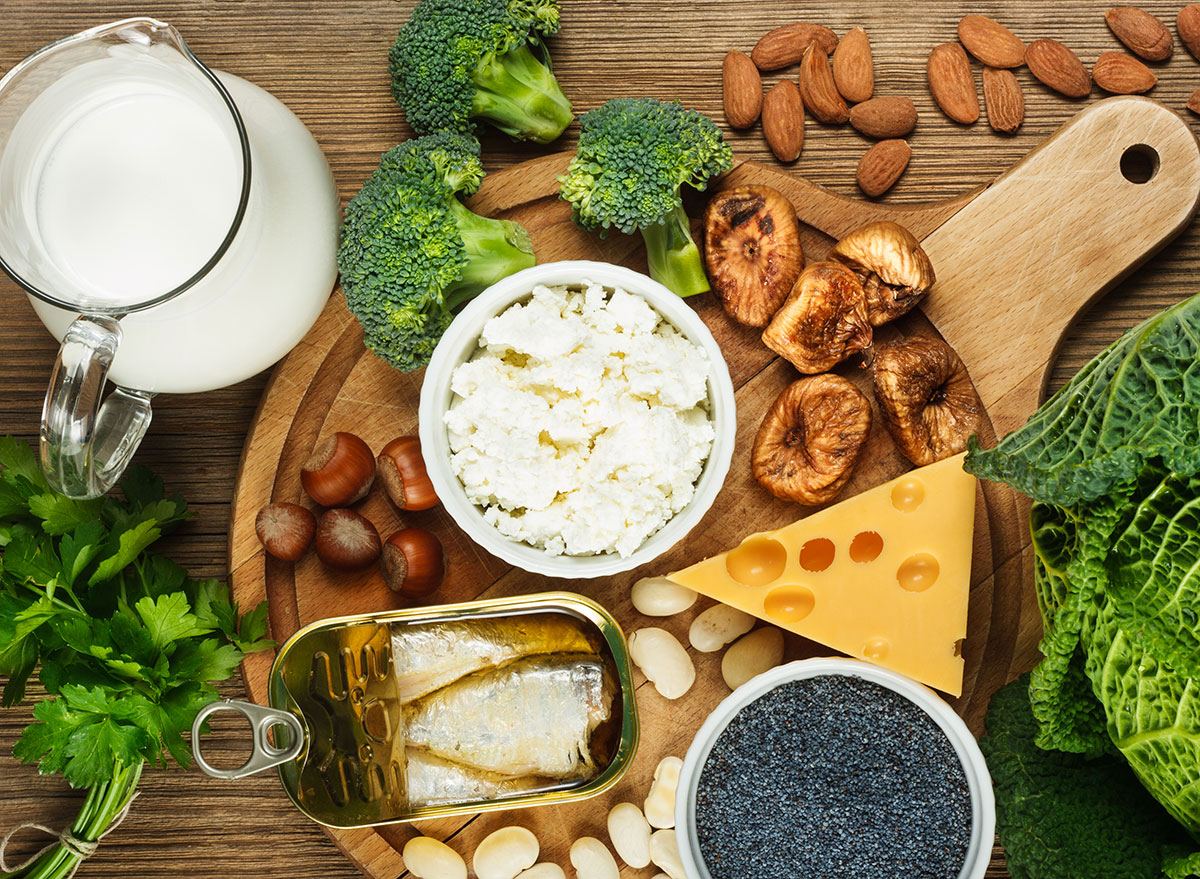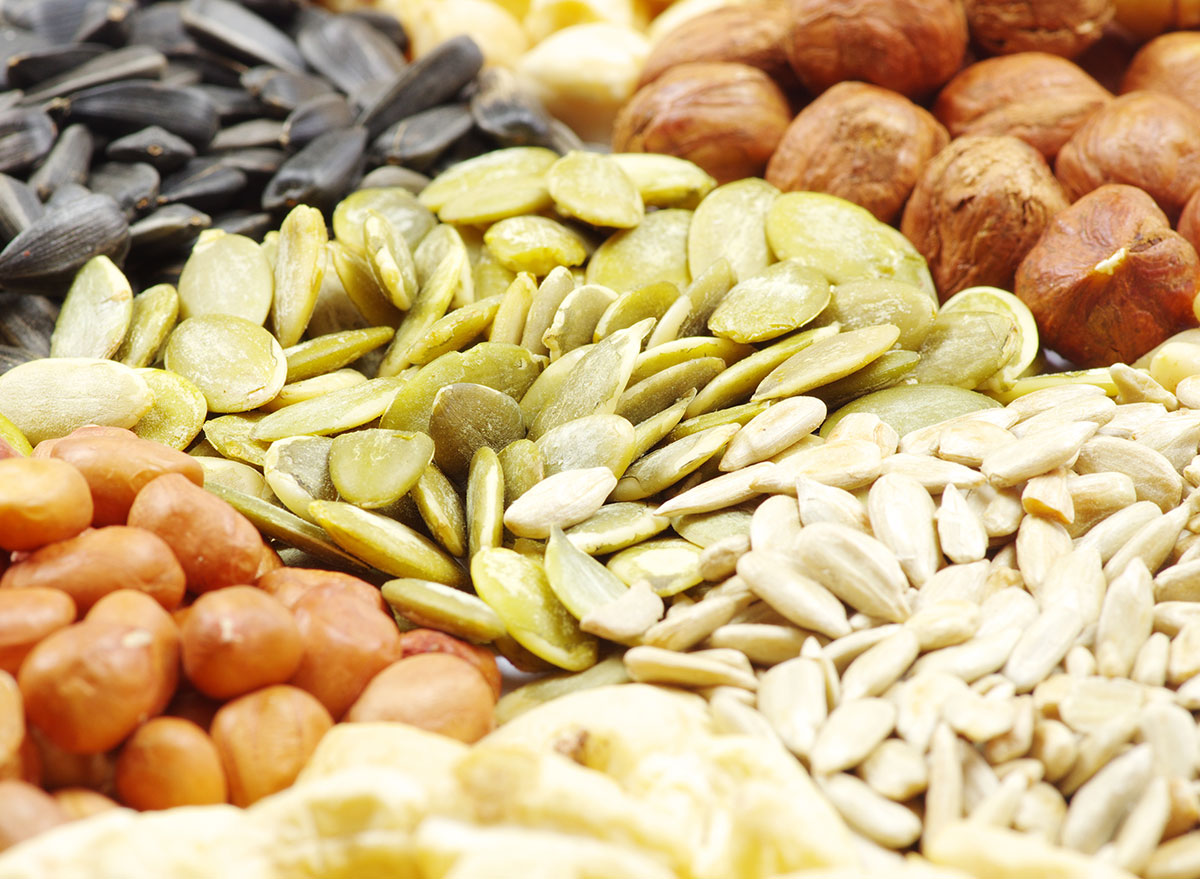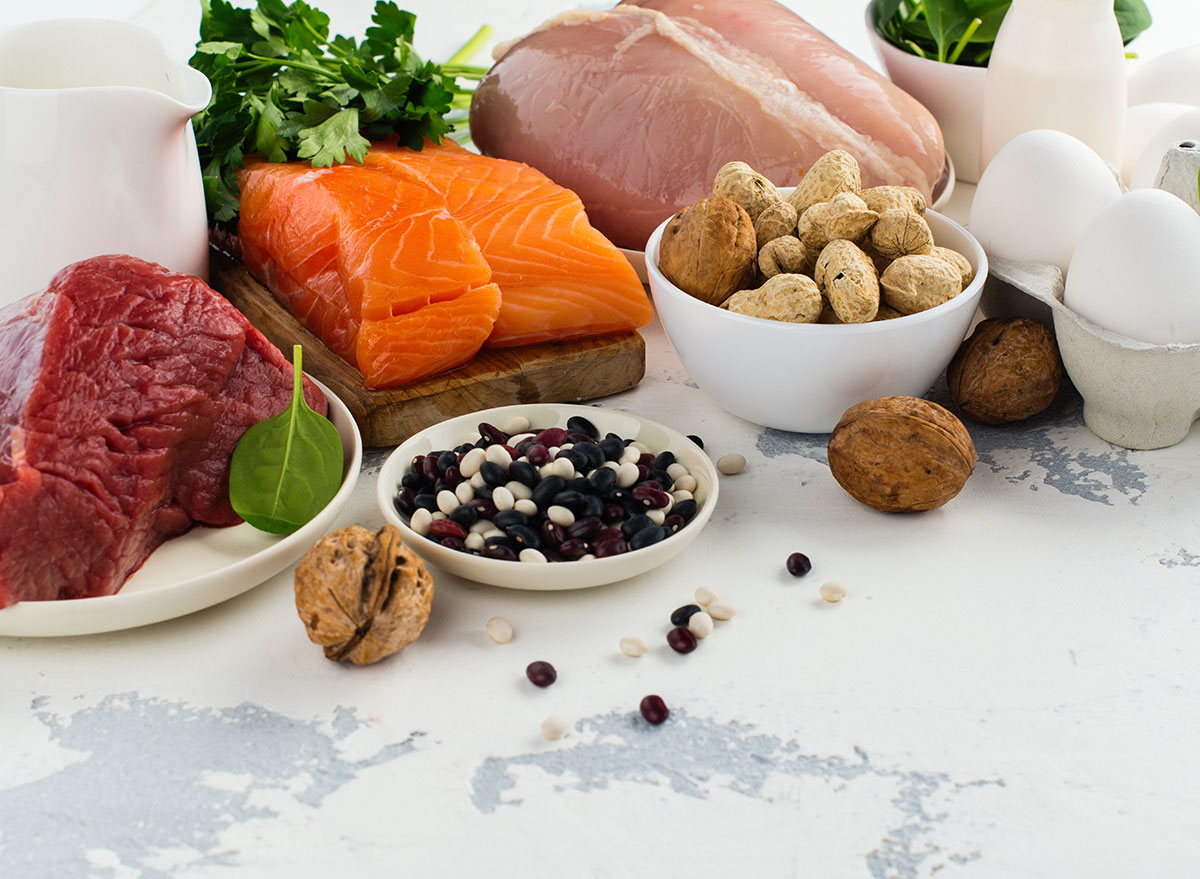Over 40? Here Are The Best Foods To Eat Every Day, Say Dietitians

Hate to break it to you, but once you’re over 40, the risk of suffering from multiple chronic illnesses increases. Your body begins operating and responding differently than when you were younger—for example, your organs might not function as effectively due to cellular damage, and it’s common to have problems affecting multiple organs at the same time.
Suffice to say, when you hit your fourth decade, you need to adopt even healthier habits to ward off conditions such as arthritis, Type 2 diabetes, cardiovascular disease, obesity, osteoporosis, back pain, visual problems, and more.
The best way to take better care of yourself? You guessed it—eating the right diet, a balanced one. Nutrient deficiencies (such as calcium) can lead to osteoporosis, back pain, and the weakening of muscles. On the other hand, excessive nutrients—even ones that are thought to be “healthy”—can result in packing on excess weight and that, in turn, can lead to hypertension, obesity, and more.
For those in their forties, eating healthfully mostly comes down to consuming “a diet focused on anti-inflammatory ingredients and antioxidants,” says Trista Best, RD, MPH, LD. “That’s really important to help prevent and reverse chronic conditions and illnesses.”
Start with this delicious list of foods to eat when you’re over 40. Then, for some easy ways to incorporate these foods, check out our list of the 100 Easiest Recipes You Can Make.
Berries

According to Melissa Mitri, MS, RD, berries such as blueberries, strawberries, raspberries, and blackberries are packed with antioxidants.
“They are also an abundant source of vitamins A and C, which may help delay inflammation that can lead to wrinkles and skin damage,” says Mitri.
So berries are good for your insides and your outsides. Antioxidants help limit the damaging cellular oxidation process, thereby preserving the health of cells.
Best also points out that blueberries are nutrient-dense, meaning they are low in calories and high in nutrients.
“Just one cup of blueberries contains 4 grams of fiber and almost 25% of the RDI for vitamin C,” she says. Fiber contributes to the feeling of being full (and helps ward off belly fat), whereas vitamin C is important for your immunity.
Nuts and seeds

Nuts—such as walnuts, almonds, and pistachios—as well as flax, chia seed, and sunflower seeds, are essential over 40.
“Nuts and seeds contain omega-3 fats, as well as vitamin E, which plays a role in maintaining our skin elasticity as we age,” says Mitri. “In addition, vitamin E is an antioxidant that may improve our immunity, helping us to fight off infections.”
“Walnuts are a natural source of key nutrients that support our overall health; one study showed that women who eat nuts, like walnuts, at midlife have a greater likelihood of overall health and well-being at older ages,” says Lauren Manaker, MS, RDN.
Eating walnuts may also help maintain healthy blood pressure—and since elevated blood pressure is a risk factor for heart disease (the top killer in America), finding ways to manage heart health over 40 is key.
Fatty Fish

“Fatty fish, such as salmon, tuna, and sardines are rich sources of omega-3 fats, which have been shown to reduce inflammation in aging skin,” says Mitri. “They also keep your brain sharp, and may even have the potential to reduce the risk of Alzheimer’s later in life.”
Omega-3 fats are one of the most important nutrients for your body for other reasons as well.
“Hormonal changes in your 40s can increase the risk for many health conditions, including heart disease,” explains Rima Kleiner, MS, RD. And omega-3s help maintain a healthy heart and reduce the risk of cardiovascular disease.
Leafy Greens

“Leafy greens (such as kale and spinach) contain high levels of anti-aging vitamins, minerals, and fiber that may protect our cells and DNA,” says Mitri. “You can enjoy leafy greens raw in a salad, or sauteed with garlic and a drizzle of olive oil to get your daily dose.”
Kleiner highlights that leafy greens are also a good source of calcium and vitamin C, which help keep the bones strong and reduce the risk of osteoporosis as we age.
Avocados

“Avocados are rich in heart-healthy fats, are anti-inflammatory, and support youthful skin,” says Mitri. “Because of the healthy fat content, they are also satiating and can help with weight control.”
Again, after age 40, the risk for cardiovascular disease increases with changing hormones, and avocados can support a strong ticker.
Here’s One Major Side Effect of Eating Avocado, Says Dietitian.
Calcium-rich foods

Women’s estrogen levels start to decrease in their 40s, which negatively impacts calcium absorption.
“To help keep bones strong and reduce the risk of osteoporosis, add more calcium-rich foods—such as yogurt, cheese, broccoli, leafy greens, almonds, and seafood—to your diet,” advises Kleiner. “Canned fish with bones, like salmon, sardines and anchovies, as well as shellfish (think clams, crab, and shrimp) also contain calcium.”
Plus, check out our list of Popular Foods With More Calcium Than a Glass of Milk.
Protein-rich foods

“Including protein at every meal and snack is smart at any age, but especially for those 40 and older since we begin to lose muscle mass as early as our 30s,” says Kleiner. “Eating heart-healthy protein throughout the day—along with strength-training—can help preserve muscle mass.”
So be sure to include protein at breakfast (eggs, smoked salmon and crab are good sources), lunch (think salad with beans, shrimp or scallops), snacks (such as jerky, without added sugar), and dinner (lean proteins such as grilled salmon and chicken).
For more protein ideas, check out our list of The Best Forms of Lean Protein You Can Eat.








